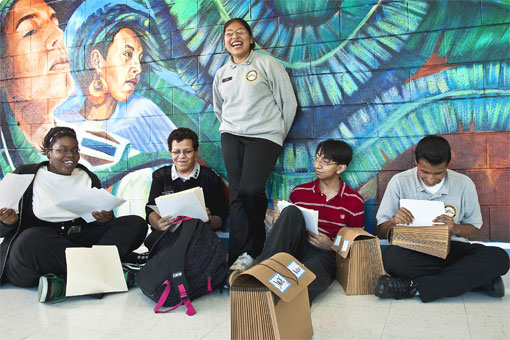“I bet there where people walking around in the Bible complaining about kids today,” gripes Roger Sterling, an advertising executive in the popular U.S. TV series, “Mad Men.” It was a rare moment of truth-telling from one of the show’s most pompous, chauvinistic characters. Young people in the United States are indeed often spoiled, disengaged and self-centered.
But we, members of a student debating team at Farragut Career Academy High School on Chicago’s southwest side, do not fit this mold.
Whether arguing for and against the cap-and-trade approach to solving global warming, or debating the federal government’s role in providing welfare assistance to the poor, we’ve done our homework on all the hot-button issues.
We meet twice weekly at school to practice hashing out all sides of the issues that affect our world. When it comes to U.S. stimulus spending, we recognize its potential to kickstart the economy, but worry about our country’s ability to repay its debts down the road. Jade Perkins, a six-foot-tall African American with glasses and a bent for hoodies and Converse All-Stars, doesn’t put it lightly, “China is eventually going to ask for its money back, and they’re most likely going to be asking us.”
We want to do more to lighten our carbon footprint, but the lack of city programs makes it harder on us. As Victor Garduno, a second-year student who makes up for his short height with a larger-than-life personality, points out, “Those blue bins aren’t in my neighborhood”—and not in most other areas of Chicago either.
The educational attainment gap is an issue that gets the entire debate team riled up. Education is the key to breaking out of rough Chicago neighborhoods, such as Little Village and North Lawndale, but we don’t think the public schools in our neighborhoods are cutting it. For Jade, it all comes down to money. “School funding is all tied to property taxes,” he observes. “People in the city are poor, so the schools don’t receive enough. It will always be that way…”





